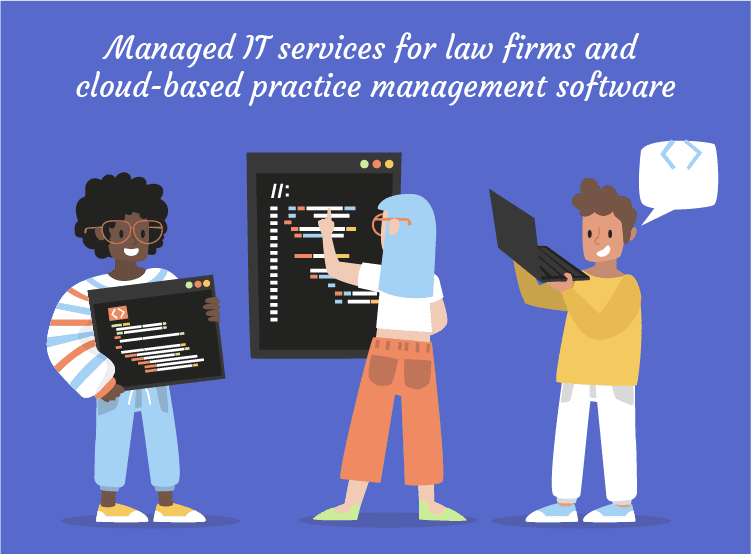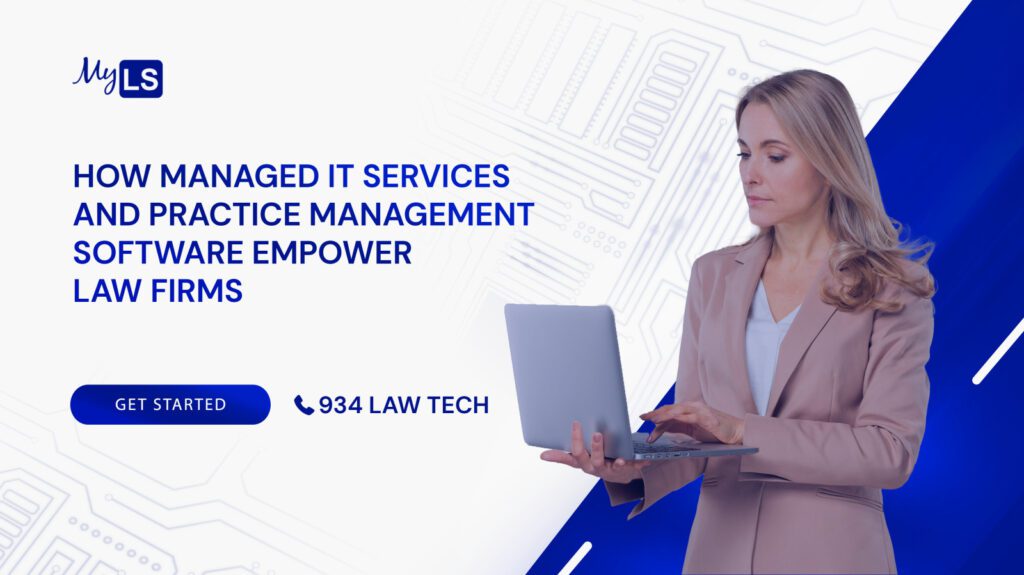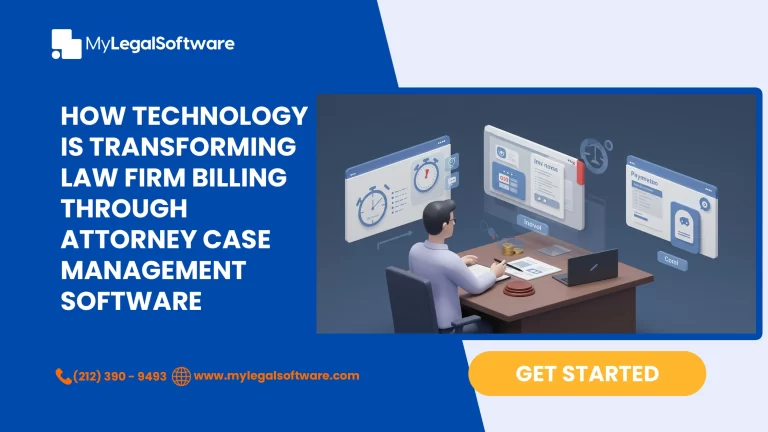If a law firm fails, one of the causes may be associated with a lack of managed IT services, here’s why:
In today’s digital era, the success of law firms heavily relies on efficient and secure IT infrastructure. To meet these demands, law firms need to leverage managed IT services, which involve outsourcing IT operations and infrastructure management to specialized service providers.
By partnering with managed IT service providers, law firms can enjoy a multitude of advantages, including enhanced cybersecurity, improved data management, increased efficiency, cost savings, regulatory compliance, disaster recovery, and scalability which when not in place could lead to serious setbacks.
What Are Managed It Services For Law Firms
Managed IT services for law firms refer to the outsourcing of IT operations and infrastructure management to specialized service providers. These providers take on the responsibility of managing and maintaining the law firm’s IT systems, networks, hardware, software, and security measures.

What is the role of the IT department in a law office?
Infrastructure Management:
First and foremost, the IT department is the guardian of the law office’s technological infrastructure. They are the vigilant caretakers of servers, networks, workstations, and other hardware components that power the office’s digital ecosystem.
Just like a vigilant sentry, they maintain and optimize this infrastructure to ensure it operates at its peak performance, allowing attorneys and staff to seamlessly navigate the digital realm.
Data Management:
One of their primary responsibilities is to safeguard the law office’s valuable data. In a world fraught with cyber threats, the IT department takes on the role of a digital knight, defending against potential breaches and attacks.
They deploy sophisticated security measures like virtual fortresses, such as firewalls, intrusion detection systems, and access controls, to fortify the office’s digital walls and keep sensitive client information safe from unauthorized intruders.
Software Management:
The IT department takes charge of software management, ensuring that the law office’s software applications are up-to-date and optimized for efficiency.
They act as the digital maestros, orchestrating the installation, configuration, and maintenance of various legal software, document management systems, and collaboration tools.
Their goal is to equip attorneys and staff with the digital instruments they need to perform their legal symphony flawlessly.
User Support:
The IT department is also a guiding light, illuminating the path for office staff through technical challenges.
They don the hat of a trusted advisor, providing user support and troubleshooting assistance when technology hiccups arise.
Whether it’s untangling network connectivity issues or deciphering software conundrums, they patiently guide staff members back on track, enabling them to focus on their legal expertise rather than technological stumbling blocks.
Training and Education:
Education and empowerment are also key roles of the IT department. They act as the technology mentors, conducting training sessions to ensure that all staff members are proficient in using the available technology resources.
Through their patient guidance, they transform potential technological hurdles into opportunities for growth and empowerment.
IT Planning and Strategy:
Furthermore, the IT department contributes to the law office’s strategic vision and planning. They become the navigators, charting the course for the office’s technological voyage.
They collaborate with management to assess technology needs, recommend innovative solutions, and align the firm’s technology with its long-term goals.
By being proactive and forward-thinking, they empower the law office to stay ahead in the ever-evolving digital landscape.
Vendor Management:
Lastly, the IT department assumes the role of a savvy negotiator and relationship builder. They interact with technology vendors and service providers, ensuring that the office procures high-quality hardware, software licenses, and IT services at reasonable costs.
Their adeptness in vendor management allows the law office to forge strong partnerships and acquire the best resources to support their legal endeavors.

Why law firms need managed IT services
Improved Cybersecurity
Law firms face an ever-growing threat landscape, with cyber attacks becoming more sophisticated and frequent. Managed IT services play a crucial role in bolstering cybersecurity defenses.
Service providers implement robust security measures, such as firewalls, intrusion detection systems, and encryption protocols, to safeguard the firm’s sensitive data.
They also provide proactive monitoring and threat detection, enabling quick response to potential security breaches.
For example, managed IT service providers can actively monitor network traffic and identify suspicious activities, mitigating the risk of data breaches and unauthorized access.
Enhanced Data Management
Effective data management is vital in the legal industry, where confidentiality, integrity, and accessibility of information are paramount. Managed IT services assist law firms in implementing comprehensive data backup and recovery solutions.
Regular backups, combined with off-site storage, ensure that critical data can be quickly restored in the event of system failures or data loss. Additionally, managed IT service providers implement data encryption and access controls, safeguarding sensitive information and ensuring compliance with data protection regulations.
By adhering to industry standards, law firms can protect themselves from potential legal and reputational consequences.
Increased Efficiency and Productivity
By outsourcing IT operations to managed service providers, law firms can streamline their IT processes and improve overall efficiency.
Managed IT service providers bring expertise and specialized knowledge to the table, allowing them to handle routine maintenance, software updates, and system monitoring. This frees up valuable time and resources for attorneys and staff, enabling them to focus on their core legal work.
Furthermore, managed IT service providers offer 24/7 technical support and issue resolution, ensuring that any IT-related problems are promptly addressed.
For example, if a lawyer encounters software issues before a critical court deadline, the managed IT service provider can swiftly resolve the problem, minimizing disruptions and maximizing productivity.
Cost Savings
Maintaining an in-house IT department can be costly, requiring significant investments in hardware, software licenses, and skilled personnel. Managed IT services provide a cost-effective alternative.
Furthermore, by partnering with a service provider, law firms can avoid upfront capital expenditures and instead opt for predictable and manageable monthly fees.
Additionally, managed IT services help reduce downtime and associated costs by providing proactive monitoring, regular maintenance, and timely issue resolution.
Moreover, the scalability and flexibility offered by managed IT services allow law firms to align their IT resources with their evolving needs, avoiding unnecessary expenses during periods of low demand.
Focus on Core Competencies
Outsourcing IT management to managed service providers allows law firms to shed the burden of IT-related tasks and focus on their core competencies. Attorneys and staff can concentrate on legal work, such as legal research, client representation, and business development.
Managed IT service providers offer external expertise in IT strategy and planning, ensuring that the firm’s technology aligns with its long-term business goals.
For instance, a managed IT service provider can assess the firm’s current infrastructure, identify areas for improvement, and propose solutions that enhance operational efficiency and support future growth.
Regulatory Compliance
Compliance with industry regulations is critical for law firms to maintain their reputation and trust with clients. Managed IT service providers play a crucial role in ensuring regulatory compliance.
They possess in-depth knowledge of data protection regulations and can assist law firms in implementing the necessary controls and best practices.
Managed IT service providers also offer assistance with audits and security assessments, helping law firms demonstrate their commitment to protecting client data. Additionally, by adhering to industry standards and regulations, law firms can mitigate legal and financial risks while maintaining a strong compliance posture.
Disaster Recovery and Business Continuity
Law firms must have robust disaster recovery and business continuity plans to mitigate risks and ensure uninterrupted operations. Managed IT service providers offer comprehensive disaster recovery solutions, including regular data backups and off-site storage.
In the event of a disaster, such as a natural calamity or cyber attack, these backups enable quick recovery and minimal downtime. Additionally, by working closely with managed IT service providers, law firms can develop comprehensive disaster recovery plans tailored to their specific needs, ensuring that critical data and systems are protected.
Scalability and Future-Proofing
The IT needs of law firms evolve over time, requiring adaptable and future-proof solutions. Managed IT services provide scalability and flexibility to meet these changing demands.
Service providers can quickly and efficiently scale IT resources up or down based on the firm’s requirements. Moreover, they ensure regular technology upgrades and refresh cycles, keeping the firm’s technology up to date with the latest advancements.
This enables law firms to align their IT infrastructure with long-term business goals, stay competitive, and effectively respond to changing industry trends.

Managed IT services for law firms and cloud-based practice management software
With all said, managed IT services providers can’t do it alone, you will need a cloud-based practice management software.
At mylegalsoftware, we understand the importance of security. We adopt a security-first approach in all aspects of our software. Also, to ensure the confidentiality of your data, we implement robust in-transit and at-rest encryption, following industry best practices such as HTTPS and TLS. Also, our commitment to security doesn’t stop there. We leave no stone unturned in our quest to provide you with a secure platform for your firm’s sensitive information with our expert security team.
In addition to our internal security measures, we undergo regular audits and certifications to provide you with peace of mind.
Get started for free!!









